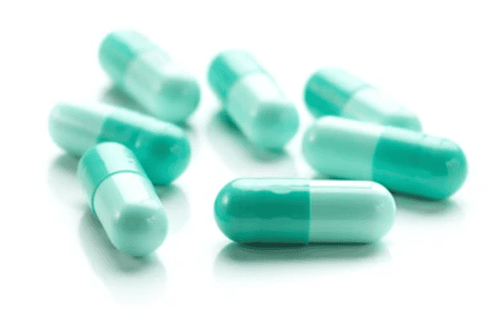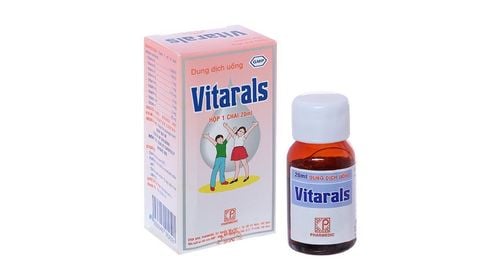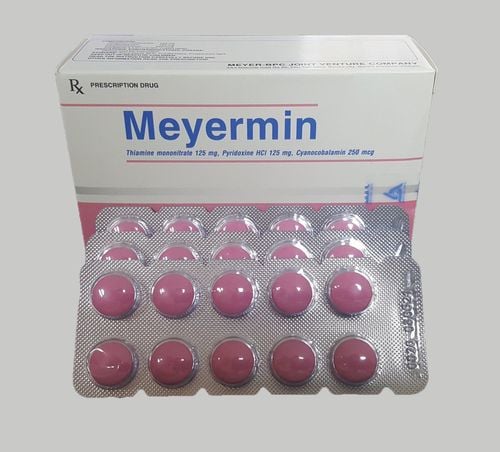This is an automatically translated article.
There are many parents who often complain that the child feels sick more often from the time weaning until about 3 years old without knowing the cause. Doctors have given the answer to this problem because this is the period known as the "immune gap" when a child's immune system is not fully developed, making children very susceptible to diseases due to lack of immunity. enough immunity. When does a child's immune system mature?
1. What is the child's immune system?
The immune system of infants and young children is the child's natural defense system against pathogens such as bacteria, viruses, parasites, ... and other harmful environmental factors. A healthy immune system helps children develop optimally during the first few months of life as well as has a long-term impact on their health. The mechanism of action of the immune system can be divided into two types:
Innate immunity: the immunity that is formed from the time the body is born, mainly antibodies from the mother passed through the placenta in the first months of life. late pregnancy and significant amounts of IgA and nutrients from breast milk. However, this immunity does not last long, after a few months, it will decrease quickly, so children need a solution to additional protection, strengthen resistance Reactive immunity: immunity acquired when the body is exposed to antigens (pathogens), have specificity and form immunological memory. This is also the principle of vaccination or vaccination

Hệ miễn dịch của trẻ nhỏ là hệ thống bảo vệ tự nhiên của cơ thể trước các tác nhân gây bệnh.
2. When does a child's immune system mature?
At birth, the baby's immune system is very good thanks to the antibody system received from the womb. However, "passive immunity" does not create long-term resistance because then antibodies begin to decline sharply over the next 6 months. Therefore, babies need to be breastfed immediately and exclusively breastfed until 6 months of age because this is a passive source of antibodies to maintain immunity.
From 6 months of age onwards, the maternal IgG antibodies transmitted to the child have decreased a lot, at this time the child's immune system is not yet complete, but it is not until 3-4 years of age that this system can fully produce these antibodies. Antibodies help fight infections. The interplay between the passive and active immune systems in the period from 6 months to 3 years is the time when children become susceptible to infectious diseases such as diarrhea, respiratory infections. or allergies.
3. Measures to strengthen the child's immune system
First of all, the most important thing is to nourish children so that they do not become malnourished by breastfeeding them from the first hours after birth and continuing to breastfeed until 2 years of age. The high concentration of globulin in breast milk helps to form antibody factors that help babies fight against infections in general, on the other hand, also effectively prevent viruses. In addition, lactoferrin in milk inhibits the absorption of iron by bacteria, interferes in bacterial metabolism, and acts as an effective antibacterial agent to help prevent bacterial infections. The probiotics in breast milk also work to strengthen the respiratory and digestive systems.

Cho trẻ bú mẹ là một biện pháp hiệu quả để tăng cường hệ miễn dịch của trẻ sơ sinh và trẻ nhỏ
Second, children need to be fully vaccinated according to the vaccination schedule of the Ministry of Health. Ensure children have a clean, fresh, smoke-free space, maintain clean body hygiene and increase outdoor exercise.
Finally, give children a reasonable and well-balanced supplement of all food groups, especially protein from milk, eggs, meat, and fish because the nature of antibodies is protein. Without protein, children will not create antibodies to prevent diseases. In addition, vitamins and minerals such as zinc, iron, calcium, magnesium also play an important role, supporting functional activities and indirectly having positive effects on the immune system. Nowadays, immune-boosting active ingredients supplement products for children with low resistance are increasingly popular. In which, there are supplements containing vitamin B1, vitamin B6, lysine, zinc, selenium, betaglucan to help supplement vitamins, minerals, essential amino acids of organic origin, in addition to support digestion metabolism, enhance nutrient absorption in children, and improve anorexia.
Please regularly visit Vinmec.com website and update useful information to take care of your baby and family.













